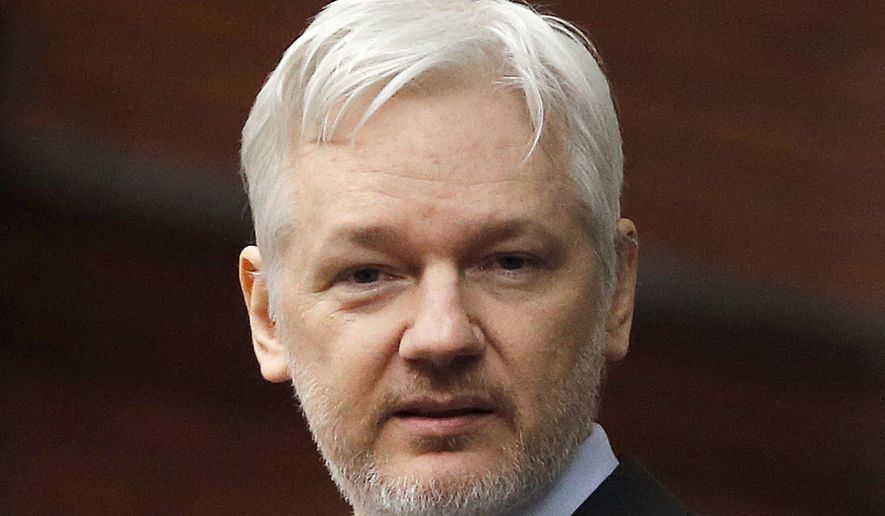OPINION:
Applause. That’s the only reaction a freedom-loving American should be giving to Julian Assange over his decision to provide private tech companies some special WikiLeaks schooling on how deeply embedded U.S. intel has woven into their business activities.
Specifically, Assange said he’s going to help companies like Google and Apple find a fix for their software that will leave them immune to unwarranted CIA intrusions — to further CIA intrusions, that is. Assange’s announcement came after it was learned, via a WikiLeaks document dump, the CIA had stumbled on the means of tapping into iPhones and Android phones, as well as into the living spaces the world over via smart TVs hooked to the internet — and that instead of alerting the companies of the tech flaw, the agency actually used and exploited the information for spy purposes.
Can you say police state? How about unconstitutional?
Assange’s tit-for-tat planned lesson plan for the tech companies is not going to sit well with the government. In fact, expect a concerted pushback from the CIA and other spook groups to go heavy on the labeling of Assange as treacherous, unpatriotic, and light in the areas of self-reflection and accountability.
But such is the state of America’s Big Brother atmosphere, the one that’s really ratcheted since the advent of the Patriot Act and the creation of the Department of Homeland Security.
As Rahm Emanuel, Democratic operative-turned-Chicago-mayor once famously intoned, “Never let a good crisis to to waste,” so went the entire federal government after the September 11, 2001, terror attacks on America’s soil. Not saying the country didn’t need the extra safeguarding, just saying passing a bureaucratic bloat-float like the Patriot Act without first reading it was not the best defense against U.S. enemies, foreign and domestic.
It wasn’t long before things like expansions to the FBI’s National Security Letters’ program took effect.
Hmm, national security letters — what are those, you say? If you don’t know, don’t worry — you’re not really supposed to know.
NSLs are administrative orders that give the FBI the means of obtaining personal information on those suspected of terror ties — information like telephone, email and financial data — without having to go that pesky Fourth Amendment, court warrant route. Basically, the FBI, by citing national security, can pretty much issue itself the OK to tap these suspects’ data — and what’s more, the agency can issue the letters via gag order. So that means the recipients of the NSLs are barred from alerting the targets. And where are these letters commonly issued?
To the likes of telephone companies. Google. Facebook. But wait — there’s more.
NSLs have been used by the FBI for decades. But because of the seriousness of September 11, the Patriot Act not only changed the tone of the program, so that the issuance of the letters became more rule, less exception. But it also opened the doors for more letters to be issued by allowing for any federal agency, not just the FBI, to seek NSLs so long as the operation could be tied to a terrorism cause.
These were dramatic turns in America’s democratic-republic society.
Suddenly, post-September 11, secret government surveillance — even on American citizens not accused of any crime — became Necessary and Proper national security.
There’s more, way more, going on behind the scenes of America’s surveillance society than most Americans know. From banking to tweeting — to now, it appears, listening in to couch potatoes’ discussions via smart TVs at home — the eyes and ears of Uncle Sam are watching and listening. The fact that Assange is taking a small step to reel in the surveillance and level the civil-rights playing field should not be seen as an act of treason. Rather, it’s in line with what Founding Fathers would do.
As attributed to Benjamin Franklin, albeit with various interpretations: “Those who would give up essential liberty, to purchase a little temporary safety, deserve neither liberty nor safety.” Smart words for dangerous times.




Please read our comment policy before commenting.